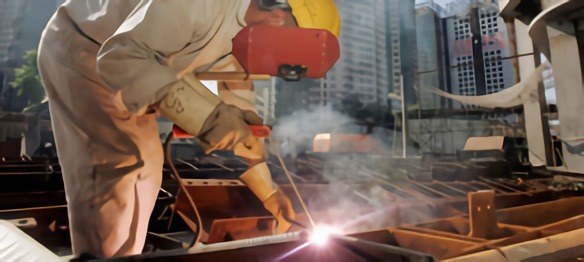TWS is a Great Training Option for Everyone
Learn more about how we can prepare you to advance your career.
Tulsa Welding School frequently emphasizes the hands-on approach to its technical education programs. Our students benefit from a well-rounded training experience with a combination of classroom theory and experiential learning courses. We do this so that our students are best-prepared to take on the real world successfully. Indeed, there are multiple benefits of hands-on learning methods.
Greater Learning Involvement
Hands-on learning is the only way that students are able to directly understand the intricacies of the field they will eventually enter. When students are taught by doing, each is shown the correct ways to perform operations like welding or pipefitting, they have a visual of what is happening during any given step of a process and better understand the reasoning behind each movement. Many students learn best by seeing and doing, so the opportunity to actively learn enhances not only their knowledge but also increases their likelihood of doing something correctly themselves while improving hand-eye coordination.
Encourages Action & Problem Solving
During a hands-on learning experience, students have the opportunity to actively explore their field. Courses allow students to work together on projects, allowing the opportunity to discuss relevant topics and varied approaches, and alone, giving them the chance to find their own unique solutions to problems while using industry tools necessary for their future positions. Having learned through action and collaboration, students are better-equipped to perform a wider range of tasks as well as use critical thinking to resolve problems in a number of ways, which is a must when new strategies must be implemented at a moment’s notice.
Improved Retention
It has actually been scientifically-proven that hands-on learning improves an individual’s likelihood to remember what’s been learned. Learning by doing increases the importance of the material, makes it more interesting and more enjoyable. Indeed it is far more difficult to passively undergo welder’s training by reading about it, especially when a student is expected to execute the associated tasks, not to mention being more dangerous. According to information trivia site, TimelessInformation.com, we could potentially learn up to 80% of what we do, though there is no absolute proof of this. It is, however, more likely for students to retain the information they’ve had the opportunity to actively discuss and apply with classmates and teachers.
Have You Considered a Career in the Skilled Trades?
Fill out the form to recieve a no obligation info packet.
TWS maintains a strong commitment to hands-on learning because we understand the benefits of it. Getting their hands dirty helps students to accurately execute tasks and understand the value of the strategies used, diagnose, and solve operational problems and remember how to implement learned knowledge when they enter the workplace. Some things we learn in life simply cannot be taught by reading a book, like riding a bicycle. The same principle applies to areas like welding and pipefitting training. It’s for your future, so learn by doing.
benefitof.net/benefits-of-hands-on-learning/
http://www.compact.org/wp-content/uploads/resources/downloads/MN-SL_and_academic_success.pdf
http://www.timelessinformation.com/memory-retention-rates-tell-you-how-to-learn/
This blog has been labeled as archived as it may no longer contain the most up-to-date data. For a list of all current blog posts, please visit our blog homepage at https://www.tws.edu/blog/







